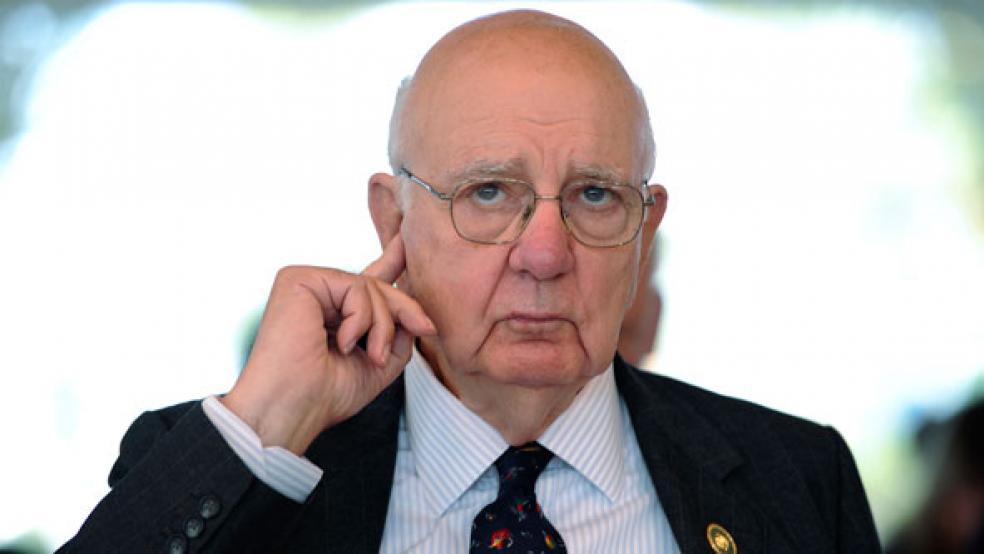Former Federal Reserve Board chief Paul Volcker and former Treasury Secretary Robert Rubin on Wednesday joined the chorus of voices giving Congress and the White House about five months after the November election to avoid a “fiscal cliff” that would throw the nation into a double-dip recession.
At or near the end of this year, the Bush era tax cuts expire, over a trillion dollars in budget cuts go into effect because of sequestration, and the deficit ceiling will be reached, requiring Congressional action to avoid default. Failure to act, the two top Democratic Party advisers said, will likely knock several percentage points off economic growth and throw global financial markets into turmoil.
The decisions facing the lame duck Congress and White House are “of enormous importance to the fate of the country,” Rubin said. Yet he saw “realistic chance the parties will decide to work together toward a serious response to our fiscal challenges. Maybe if we have enough incumbents lose, there will be enough elected officials . . . willing to be more serious about governance,” he said.
Sounding like the man currently running the Fed, Volcker, whose tenure in the late 1970s and early 1980s was marked by a huge run-up in interest rates to curb inflation and a concomitant deep recession, said elected leaders should avoid pulling too much spending out of the economy too quickly given the fragile state of the recovery. But “it’s not too soon to think long and hard about the medium and longer term,” he said, “even as we continue the current stimulus.”
The two former top officials were among the keynote speakers at a daylong forum on new directions for the economy sponsored by The Atlantic Magazine, whose latest issue hit the newsstands Wednesday. Its cover story profiled Ben Bernanke, the current Fed chief, with a headline calling him “The Hero.”
But that sentiment was far from universally shared at the forum. A number of former Republican officials at the conference warned that the Fed’s near-zero interest rate policy was penalizing savers. They also warned that quantitative easing would eventually lead to a declining dollar and rapid inflation. “We will not solve the deficit problem until we start worrying about getting quality out of money,” said Lawrence Lindsay, the former top economic adviser to President George W. Bush.


